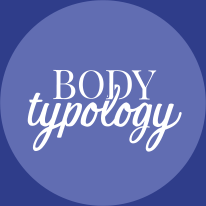Take the Body Type Quiz! Determine your type for easy weight loss.
Too Much Protein and
Chart of Protein Foods
Too much protein has many negative effects on the body. Excess protein is transformed into fat which leads to overweight and obesity.
It is hard on the heart, leading to clogged arteries.
The liver is overworked and the kidneys secrete excess uric acid that needs to be eliminated. This stresses the kidneys and leads to gout.
Excess protein leads to osteoporosis as the body becomes overly acidic and leeches calcium from the bones and minerals from the body.
Constipation is another result of too much protein, as a diet high in protein is also high in fat, lacking in fruits, vegetables and fiber.
Too little protein weakens the body slowly but surely over time. It also weakens the stomach, as the stomach produces less and less hydrochloric acid. I know this first hand as I was vegetarian for 16 years and my body was quite weak. When I began eating chicken and fish my strength gradually returned. I took a protein digestive aid supplement for a few months until I was better able to digest the protein.
Chart of protein foods
Food with the protein content shown in grams.
| Plant Based sources | |
| Tempeh (4 oz) | 19 |
| Tofu (4 oz) | 10 |
| Soymilk (10 oz) | 10 |
| Soybeans, cooked (1/2 cup) | 11 |
| Pinto beans (1/2 cup) | 7 |
| Lima beans, cooked (1/2 cup) | 5 |
| Peanut butter (2 TBSP) | 8 |
| Chick Peas, cooked (1/2 cup) | 8 |
| Hummus (1/4 cup) | 5 |
| Almonds (1/4 cup) | 7.5 |
| Sunflower seeds, (1/4 cup) | 6.5 |
| Walnuts (1/4 cup) | 5 |
| Brown Rice, cooked, (1/2 cup) | 2.2 |
| White Rice, cooked, (1/2 cup) | 1.2 |
| Pasta, cooked, (1/2 cup) | 3.2 |
| Whole wheat bread (1 oz slice) | 3 |
| Animal based sources | |
| Chicken (3 oz) | 27 |
| Turkey roasted (3 oz) | 25 |
| Lean roast beef (3 oz) | 24 |
| Canned tuna (3 oz) | 23 |
| Salmon (3 oz) | 22 |
| Cottage Cheese ( 1/2 cup) | 14 |
| yogurt low fat plain (8 oz) | 12 |
| Cheese (1 oz) | 7 |
| Egg 1 medium | 6 |
| Egg white (1) | 3.5 |
Sources: Health Canada, Nutrient Value of Some Common Foods (1999); Tufts University School of Medicine; Harvard University; USDA National Nutrient Data Bank.
It is easy to see from the list of protein content of foods above that animal foods provide higher amounts of protein. How much protein you need depends on you, your body type, your lifestyle and how active you are. A very general guide is 45 grams per day for a woman and 55 for a man. Red meat should only be eaten organic and occasionally.
If you'd like to know how much protein you need and what type of diet best suits your particular needs book a consultation with me to optimize your health and increase your energy.
